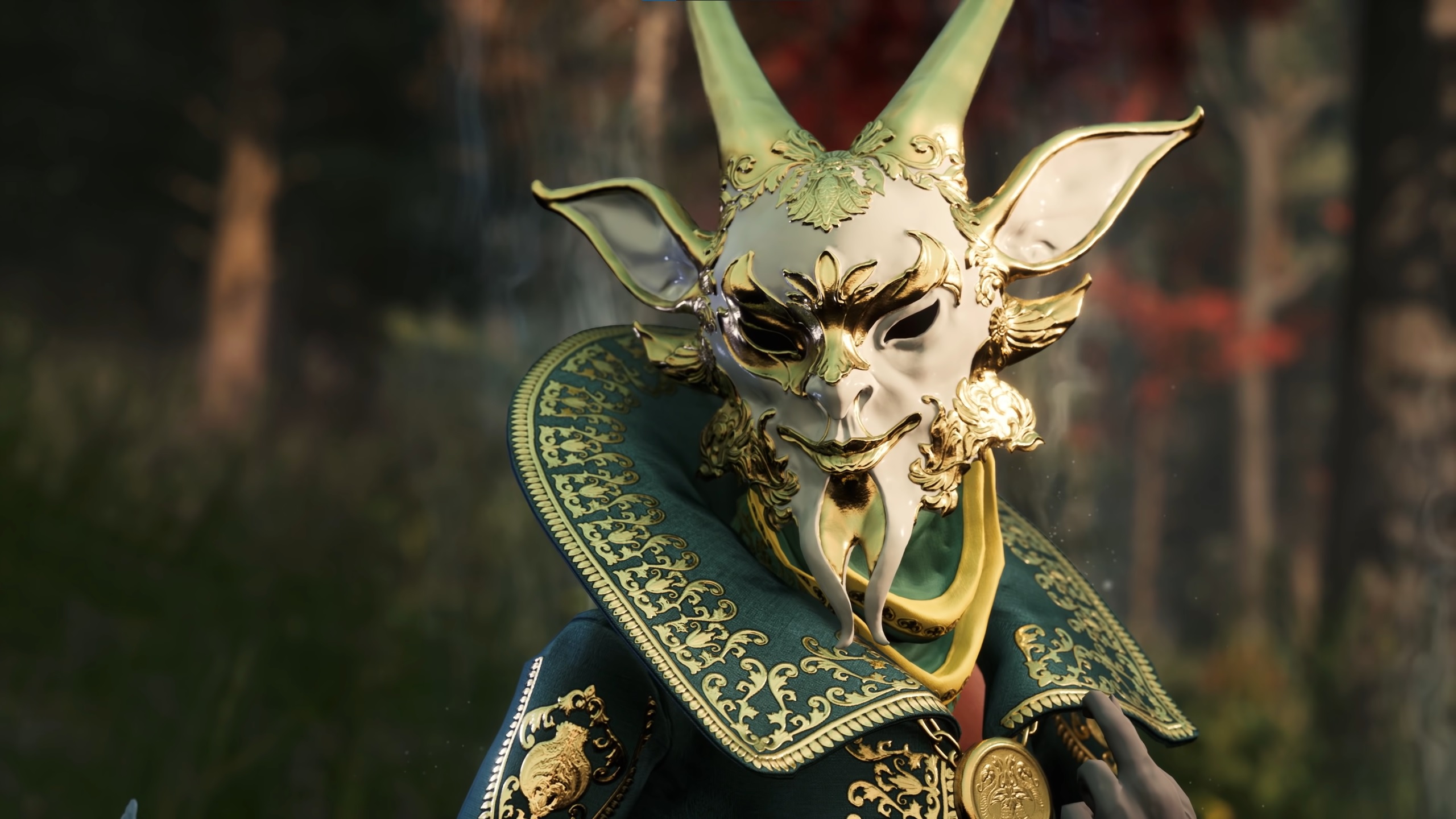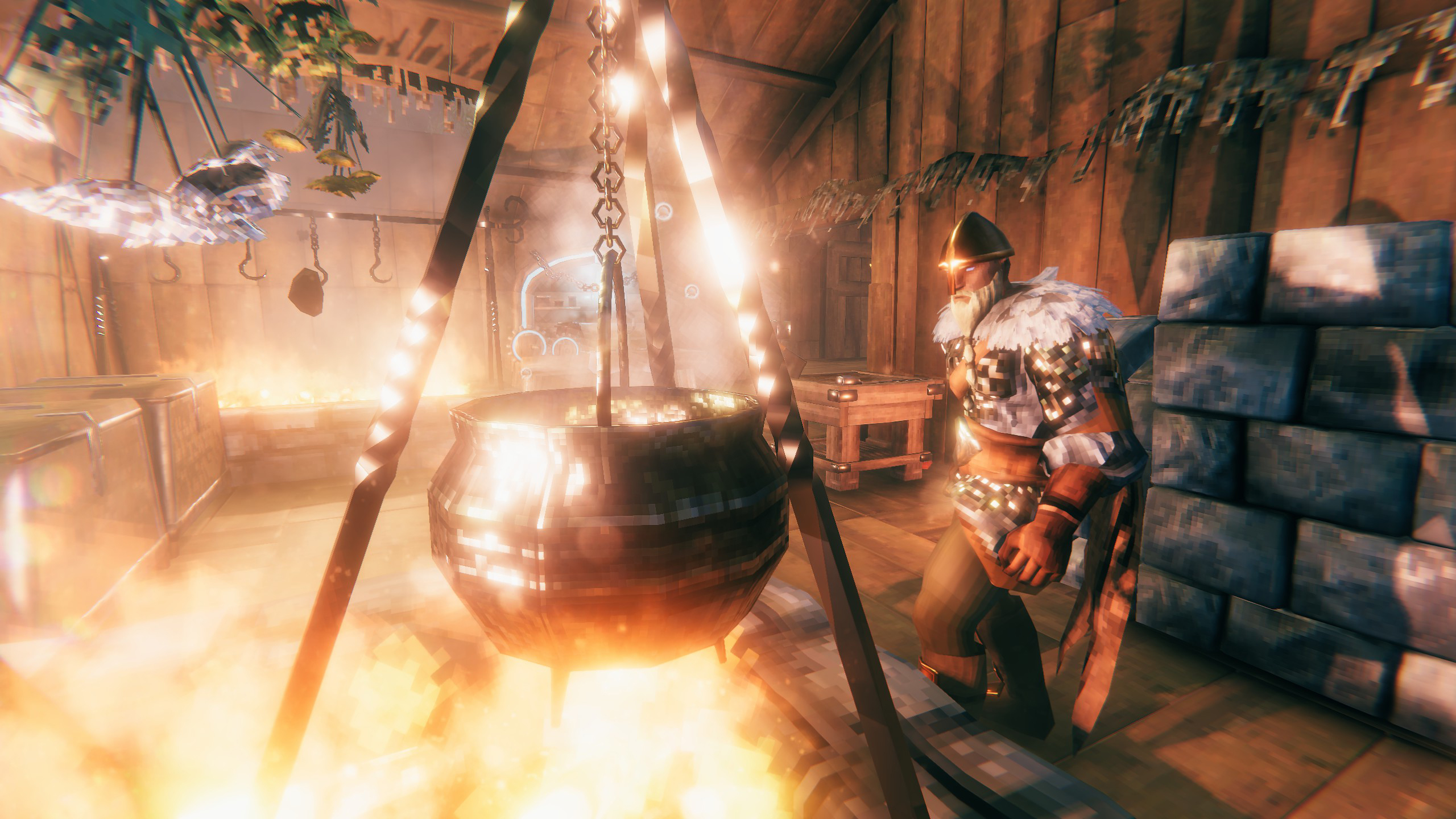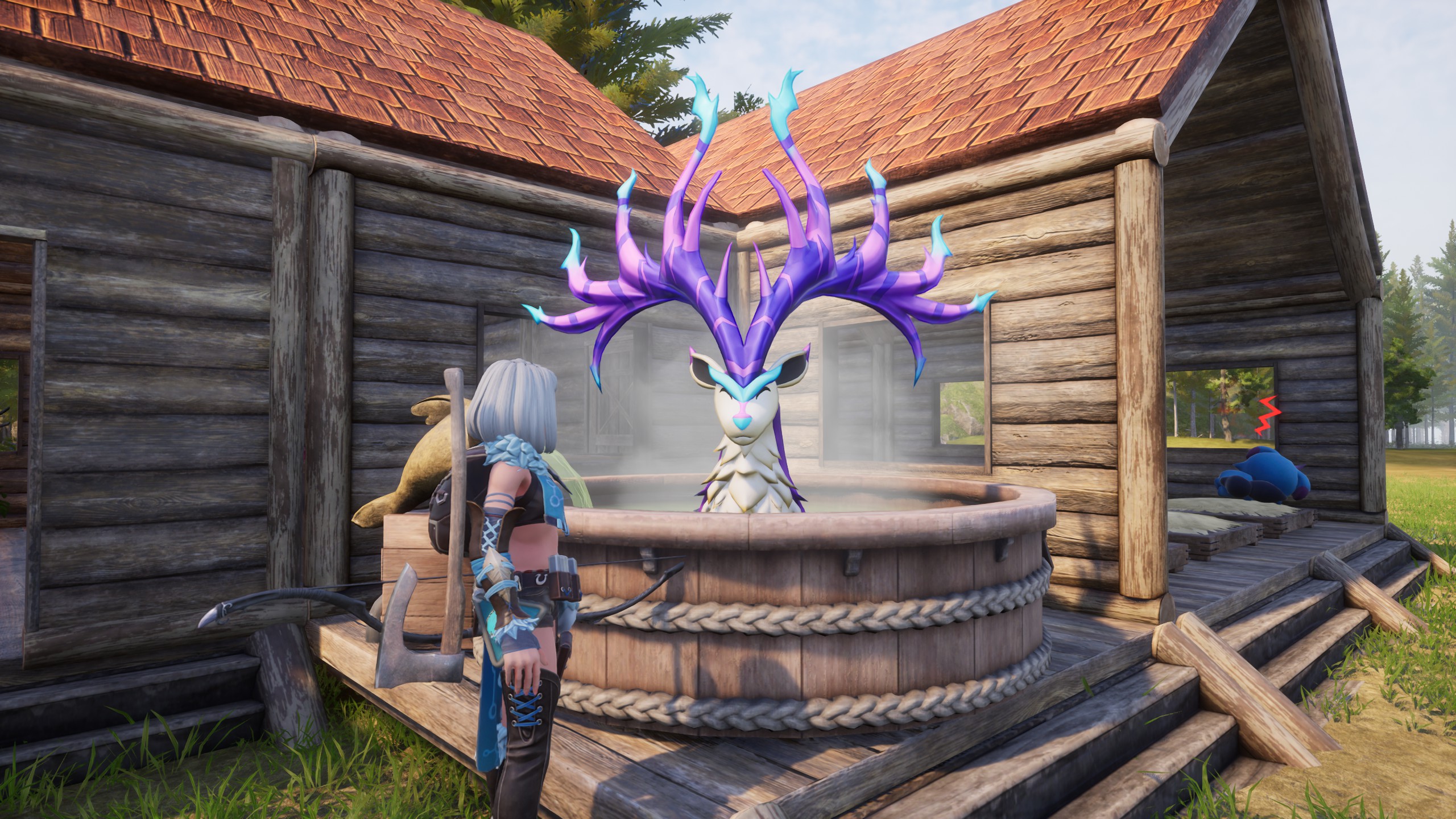Survival games are having another viral moment, making PC players the tastemakers once again
The genre that just can't stop producing hits is still entirely the territory of PC gaming.

Across the history of PC gaming, plenty of genres have had the honor of being the most PC of genres—from the era of adventure games to the rise of FPSes—but the most PC gaming-ass genre of today is undeniably survival games. We are the birthplace and the proving ground for a style of game that just can't stop producing massive hits several times a year, so let's celebrate our time as tastemakers.
There were a few years there where, much as I'd enjoyed so many of them, I nearly got sick of the words "early access survival game." I was in a Minecraft slump, I never got quite into Ark, and I thought maybe it was time to just get over punching trees and organizing fleets of stone storage. Then Valheim launched in 2021, selling over 5 million copies in its first month of early access and sucking me and my friends in for over 100 hours.
Valheim's incredible success reminded me that it was a phenomenon that could have only happened on PC. I vowed to not to lose faith ever again in the genre we spawned—a commitment that my Palworld playtime has reconfirmed.
The modern survival genre was conceived on PC. Even before Steam's official Early Access program put a stamp of legitimacy on the practice, the back to back success of Minecraft's alpha and the original DayZ mod were proof that something about survival was irresistible even in an unfinished state. Soon after that we had Rust, Terraria, and Ark, all immense word of mouth sensations in the era just before we'd have called such success "viral."

None of them could have become so successful on consoles. Not on PlayStation or Nintendo systems, certainly, but even the Xbox Live Arcade, the digital store of the late 2000's that was known for producing some indie game hits of the time, didn't have the structure to support the tech demo-like virality of early survival hits. PC players, who were already well familiar with downloading mods and patches, were the perfect audience. We were constantly putting up with shoddy PC ports of major, full-price games, so how could we hold a buggy experience against a cheaper, cutting edge trend?
Over a decade later, survival games are still producing hits and neither console publishers nor bigger studios have managed to wrest the genre away from us.
As if by unspoken agreement, we all came to expect that survival games would launch with the grit and weirdness of an unfinished experiment—whether with an Asset Store aesthetic or weird physics and collision glitches throughout. That became part of the pitch, because something about punching trees and tying stones to sticks to build a ramshackle log hut in a woods while staving off starvation with berries just keeps being compelling no matter what brand of jankiness each new game comes with.
The early access-ness that some originally met with wary suspicion became accepted convention. As if to encode those qualities, the genre that spawned in part as a mod continues to produce incredibly prolific modding communities that couldn't have taken root anywhere but on PC. There's a convoluted but traceable line from DayZ being an Arma 2 mod to Rust originating as a "DayZ clone" with Minecraft qualities and from Pokémon Minecraft mods to Palworld's success. Eventually we'll likely see changes to the genre that Palworld or its modding scene inspires.
Keep up to date with the most important stories and the best deals, as picked by the PC Gamer team.

Over a decade later, survival games are still producing hits and neither console publishers nor bigger studios have managed to wrest the genre away from us. Fortnite only found success after ditching survival to be a Battle Royale and the survival game Blizzard had in the works, which I was genuinely excited about, was canceled in the recent Activision Blizzard layoffs. Conan Exiles was developed by Funcom but it too cut its teeth in early access on PC. Hell, even DayZ's original creator Dean Hall left Bohemia Interactive to work on another survival game, Icarus, in part because it "was an existing company, and I definitely felt like I was pulling them in a direction that was hard for them to go."
Though survival games aren't indies as a rule, the biggest hits keep coming from small teams. Valheim's first early access version was developed by a team of five, while Palworld's CEO described its initially inexperienced team as "the antithesis of proper game development." Even the sleekest looking new contender Nightingale, though not what I'd call small or scrappy, is arriving next week as a product of an independent studio of 100 founded by members who'd left larger studios. And it's starting in Early Access on PC, just like the rest. Once again, what could be the next trending game is entirely in our hands.
Unlike cinematic action games that Sony holds constantly out of PC players' reach like a carrot on a stick, or the open world RPGs that Bethesda polishes to a console-ready shine, and even unlike PC mainstay genres like 4X and grand strategy that are perennially popular but not as splashy at launch, survival games are the genre that PC players retain exclusive rights to.

Lauren has been writing for PC Gamer since she went hunting for the cryptid Dark Souls fashion police in 2017. She accepted her role as Associate Editor in 2021, now serving as self-appointed chief cozy games and farmlife sim enjoyer. Her career originally began in game development and she remains fascinated by how games tick in the modding and speedrunning scenes. She likes long fantasy books, longer RPGs, can't stop playing co-op survival crafting games, and has spent a number of hours she refuses to count building houses in The Sims games for over 20 years.

